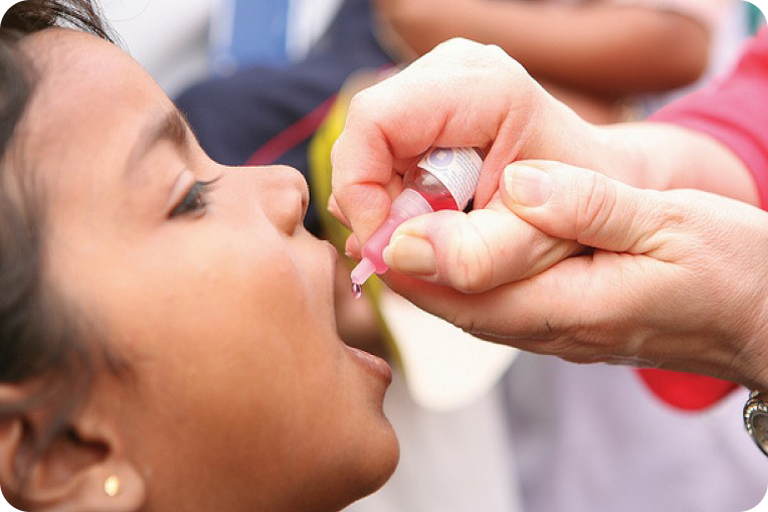Immunization is a priority program in Indonesia that is implemented from the central to the regional government. Immunization is an effort to reduce morbidity, disability and death from diseases that can be prevented by immunization. Globally, an estimated 2-3 million deaths per year have been successfully prevented due to diphtheria, measles, pertussis, polio through immunization, but there are still around 22 million babies in the world who have not received complete immunization and 9.5 million are in the South East Asian region, including Indonesia.
Basic health research (2013) states that there was an increase in the number of complete basic immunization coverage from 2007 to 2013. In 2007 the rate of basic immunization coverage was 41.6% and in 2013 the number of complete basic immunization coverage increased to 59.2%. However, in 2013 there was an incomplete basic immunization coverage of 32.1% and 8.7% of children had never got immunization.
Complete basic immunization coverage in Surabaya City in the last five years has always been above 85%. In 2018 complete basic immunization in the city of Surabaya was 97.77%. This figure has met the 2018 Strategic Plan target which was at 93.83%. Meanwhile, according to the Community Healthcare Center (Puskesmas), there were 56 healthcare centers (88.89%) that reached the 2018 target.
The basic needs of children including immunization must be met by parents. The role of a mother in the immunization program is very important, so an understanding of immunization is needed. Besides the knowledge, beliefs and health behavior of parents are also important.
Mother’s knowledge on immunization
The purpose of this study was to measure the mother’s knowledge regarding continuing immunization in the Jagir Community Healthcare Center in 2019. This research uses descriptive approach. The subjects in this study were mothers who had babies. The subjects were chosen randomly from 3 urban communities. The independent variable is mothers’ knowledge and the dependent variable is the act of immunization for the infants.
Most of the respondents in Jagir Healthcare Center’s work area in 2019 knew about the immunization service, around 97 percent. Most of the 3 urban communities in the Jagir Healthcare Center have children under five, about 73 percent. 77 percent of respondents know that there is a continuing immunization service. Maternal knowledge about immunization is to improve the body’s defense and protection against infections and various serious diseases, 75 percent. 70 percent of children under five have received continuing immunization.
Parents need an understanding of immunization as a basis for meeting children’s health needs. Giving basic immunization to children must be based on a good understanding from parents about immunization as an effort to maintain children’s health through disease prevention efforts.
The need to counter Anti-Immunization Movement
There are several things that affect the achievement of the immunization coverage target, including false rumors about immunization, people who believe that immunization causes children sick, have disabilities and even die. The anti-immunization black campaign is currently being done ‘intensively’ in several regions in Indonesia, both through anti-immunization seminars and talk shows. They also make movements through social media such as Twitter, Facebook, mailing lists, or blogs. The halal-haram vaccine, conspiracy, and vaccine side effects that can cause disability, autism, and even death are the main issues raised by the anti-immunization group.
Therefore, it is very important to improve a mother’s knowledge and understanding in selecting and sorting out information about immunization, which information is correct and which information is false. The ability to ward off hoax issues about immunization is the key to mother’s empowerment.
Thus it is the obligation of health workers to continue to disseminate and educate through various methods so it can be accepted by mothers and they have a correct understanding of immunization.
Author: Lutfi Agus Salim
Details of this articale can be viewed at: http://ijop.net/index.php/mlu/article/view/1880





